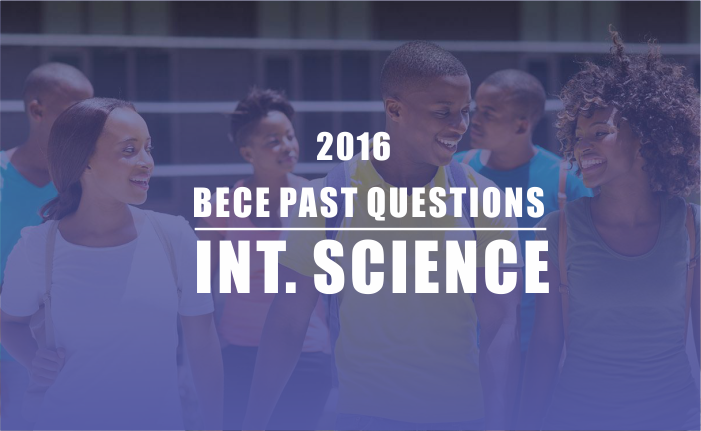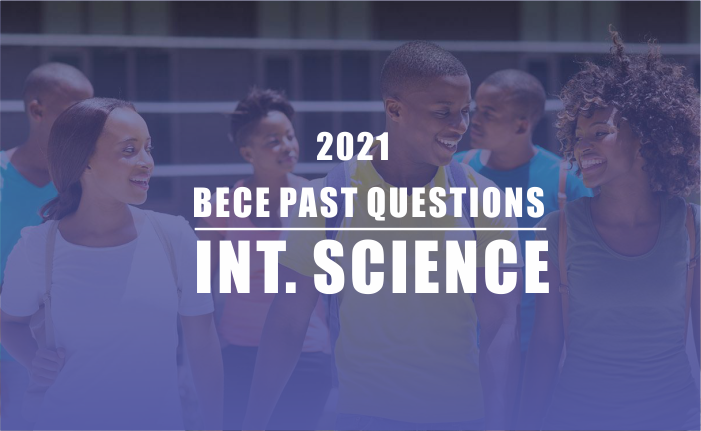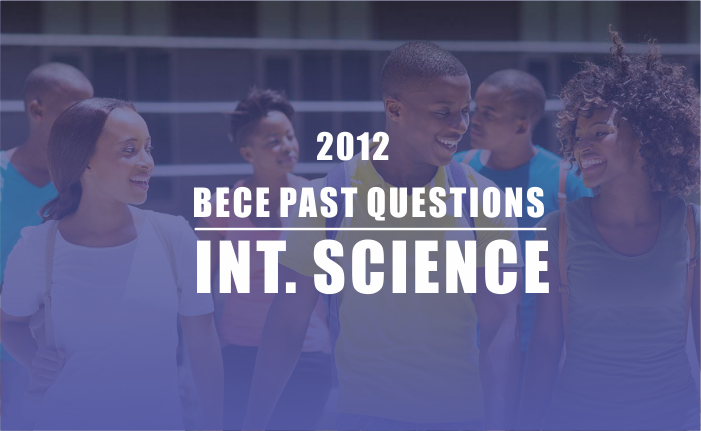Description
BECE 2016 Questions and Answers for Integrated Science
Integrated Science is a core subject in the Basic Education Certificate Examination (BECE), covering various scientific disciplines, including biology, chemistry, and physics. For students aiming for high scores, a thorough review of past questions and answers is invaluable. This guide will walk you through the 2016 BECE Integrated Science questions, breaking down common question types, key answers, and essential concepts. With this review, you’ll be better prepared to understand the nature of questions and know the right strategies for tackling similar ones in future exams.
Understanding BECE Integrated Science Questions
The BECE Integrated Science paper is structured to assess students’ knowledge across different areas of science. In 2016, the questions were designed to evaluate students’ understanding of practical science concepts and their application. Questions ranged from multiple-choice to essay-type questions, requiring in-depth understanding and critical thinking skills. These questions typically cover four main areas:
- Biology – This section often includes questions on living organisms, human biology, and ecosystems.
- Chemistry – This part focuses on chemical reactions, compounds, mixtures, and scientific methods.
- Physics – Key topics include electricity, energy, and the laws of motion.
- Environmental Science – Questions are designed to test knowledge on environmental issues, conservation, and sustainable practices.
For the 2016 BECE Integrated Science paper, these areas were well-represented, providing a balanced test of students’ overall science knowledge.

Key Topics in 2016 BECE Integrated Science Questions
The questions from BECE 2016 cover a broad spectrum of science topics, allowing students to demonstrate their understanding of each field. Here’s a look at some of the main topics that were addressed:
1. Human Biology and Health
Many of the biology questions in the 2016 BECE focused on human anatomy, health, and hygiene. Students were asked to identify parts of the human body, explain their functions, and provide answers related to basic health practices. Understanding these fundamentals is crucial, as they often appear in various forms in BECE exams.
2. Chemical Reactions and Properties of Matter
This topic featured prominently in the chemistry section, testing students on the properties of different states of matter, the periodic table, and simple chemical reactions. The ability to distinguish between elements, compounds, and mixtures is essential, along with understanding how substances interact with each other.
3. Energy and Electricity
In physics, the 2016 questions included energy forms, sources, and transformations. Understanding concepts like kinetic and potential energy, alongside the basic principles of electricity, is essential. This included questions on how to calculate power, the role of resistors, and how circuits function.
4. Environmental and Ecological Knowledge
Integrated Science in BECE exams often includes questions on ecosystems, food chains, pollution, and conservation practices. In 2016, students were asked questions that assessed their understanding of human impact on the environment and how to promote sustainable practices. A good grasp of ecological principles and environmental protection is vital for success.
Example of BECE 2016 Questions and Answers in Integrated Science
To give you an idea of what to expect, let’s examine a few sample questions from the 2016 BECE Integrated Science paper and provide detailed answers to each.
Question 1: What is the function of the liver in the human body?
Answer: The liver is responsible for various functions, including detoxifying harmful substances in the blood, producing bile for digestion, and storing nutrients. It plays a crucial role in maintaining the body’s metabolism and overall health.
Question 2: Describe a simple method to separate a mixture of sand and salt.
Answer: To separate a mixture of sand and salt, add water to dissolve the salt, then filter the mixture. The sand will remain as a residue on the filter paper, while the salt solution passes through. Finally, evaporate the water from the salt solution to recover the salt.

Question 3: What is kinetic energy, and how is it calculated?
Answer: Kinetic energy is the energy possessed by an object due to its motion. It is calculated using the formula: KE=12mv2KE = \frac{1}{2}mv^2, where mm is the mass of the object, and vv is its velocity.
Studying questions like these from previous BECE papers helps reinforce critical scientific principles and familiarizes students with the format and approach needed for effective answers.
Tips for Answering BECE Integrated Science Questions
Preparing for BECE Integrated Science requires a mix of knowledge, comprehension, and application skills. Here are some tips to tackle questions effectively:
1. Read Questions Carefully
Ensure you understand what each question is asking before attempting an answer. Many questions test comprehension and require careful reading to avoid misinterpretation.
2. Use Specific Terminology
Science questions often require precise language. For example, instead of saying “plants grow,” explain that “plants grow through photosynthesis, a process where sunlight is converted into chemical energy.”
3. Apply Real-Life Examples
When appropriate, relate scientific concepts to real-life examples. This can help solidify understanding and make your answers more relatable, especially in questions on environmental science.
4. Practice with Past Papers
Studying past BECE papers, like the 2016 edition, familiarizes you with the question format and types of answers expected. This also helps build time management skills, ensuring you can complete the exam within the allotted time.

Preparing for the BECE Integrated Science Exam
Success in BECE Integrated Science hinges on understanding core scientific principles and the ability to apply them in various contexts. Reviewing past papers, especially those from recent years, helps students grasp commonly tested topics. Here’s a simple plan to follow:
- Study Key Topics: Focus on major areas like human biology, chemistry basics, principles of energy, and environmental science.
- Practice Calculations: Many physics questions involve calculations, so practice using formulas and understanding the principles behind them.
- Revise Regularly: Break your study sessions into smaller chunks and review consistently to retain information effectively.
By studying the BECE 2016 Integrated Science questions and answers, you can build confidence and gain the skills needed to tackle similar questions with ease. Preparing well today sets the foundation for future academic achievements and instills a lifelong love for science.





Reviews
There are no reviews yet.